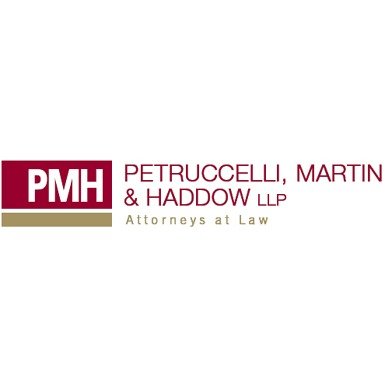Best Public-Private Partnerships (PPP) Lawyers in Portland
Share your needs with us, get contacted by law firms.
Free. Takes 2 min.
List of the best lawyers in Portland, United States
About Public-Private Partnerships (PPP) Law in Portland, United States
Public-Private Partnerships, commonly referred to as PPPs, are collaborations between government entities and private sector companies intended to finance, build, and operate projects such as public infrastructure, utilities, or services. In Portland, United States, PPPs have been increasingly utilized to address public needs ranging from transportation projects to urban redevelopment and energy solutions. The legal framework for these partnerships defines the roles, responsibilities, and risk allocation between the public and private participants. PPP law in Portland follows a combination of federal, state, and local regulations that govern procurement, contracting, financing, and project management, with a focus on maximizing public benefit while leveraging private sector expertise and resources.
Why You May Need a Lawyer
Engaging in a Public-Private Partnership can involve complex legal considerations that often require the assistance of an experienced lawyer. Common situations where legal help may be needed include:
- Reviewing and negotiating PPP contracts and agreements to ensure fair allocation of risks and responsibilities
- Navigating public procurement laws and responding to Requests for Proposals (RFPs)
- Ensuring regulatory compliance at the city, state, and federal levels
- Advising on project financing, including bonds, loans, and revenue-sharing arrangements
- Addressing land use, zoning, or environmental issues related to the project site
- Protecting intellectual property and proprietary technology involved in the partnership
- Resolving disputes between public agencies and private partners
- Managing community engagement and meeting public accountability requirements
Legal guidance is invaluable to avoid common pitfalls in PPP processes, ensure clear communication between parties, and safeguard both public interest and private investment.
Local Laws Overview
Portland's approach to Public-Private Partnerships is shaped by Oregon state statutes and the City of Portland's charter and ordinances. Some key local law considerations include:
- Oregon Revised Statutes Chapter 279A and 279B: These outline the procurement processes for public contracts, including competitive bidding and exceptions for certain types of PPP projects.
- City of Portland Procurement Rules: The City maintains its own procurement code that details how city agencies must solicit, evaluate, and award contracts involving PPPs, with an emphasis on transparency and fostering competition.
- Public Accountability: PPP projects in Portland are subject to public review and oversight to ensure they align with taxpayer interests, including opportunities for public input during the planning stages.
- Zoning and Land Use: Many PPP projects require adherence to land use and environmental regulations enforced by the Bureau of Development Services and other local agencies.
- Prevailing Wage and Labor Laws: Projects involving public funds may need to comply with prevailing wage laws and local labor standards.
- Bonding and Insurance Requirements: Private partners are typically required to provide performance bonds and adequate insurance coverage to protect against financial risks.
Frequently Asked Questions
What is a Public-Private Partnership (PPP) in Portland?
A PPP in Portland is a contractual agreement between a city or state agency and a private company to deliver a public service or infrastructure project. It combines the strengths of both public oversight and private sector innovation or financing.
How does the City of Portland select private partners for a PPP?
The City of Portland typically uses a formal procurement process, often involving Requests for Proposals (RFPs) where private entities submit their plans and qualifications. Proposals are evaluated based on criteria such as value, technical expertise, cost, and financial stability.
What types of projects are often structured as PPPs in Portland?
PPP structures are used for a range of projects including transportation infrastructure (bridges, roads, light rail), water and wastewater systems, renewable energy installations, affordable housing developments, and community facilities.
Who retains ownership of the project assets in a PPP?
Ownership terms vary with each PPP agreement. In many cases, the public agency retains ownership of the asset while granting the private partner rights to build, operate, or maintain it for a specified term.
What are the main legal risks in PPP agreements?
Key risks include unclear contract terms, shifting regulatory requirements, performance failures, financing shortfalls, and disputes over revenue sharing or maintenance responsibilities. Proper due diligence and legal review can help manage these risks.
Can local residents or businesses provide input on PPP projects?
Yes, public engagement is often an integral part of the PPP process in Portland. Opportunities for input can include public hearings, community advisory committees, and comment periods during project planning.
Are there special incentives for private partners in PPPs?
Private partners may benefit from streamlined permitting, tax incentives, or long-term operating concessions, depending on the nature of the project and the negotiated terms of the partnership agreement.
What rules apply to environmental review for PPP projects?
PPP projects must comply with local and state environmental regulations. Certain projects may require environmental impact assessments or permits from relevant agencies, such as the Oregon Department of Environmental Quality.
How are disputes resolved in PPP projects?
Dispute resolution mechanisms are typically detailed in the PPP contract and may include negotiation, mediation, or arbitration before resorting to litigation in local courts.
Do PPPs affect public access to services or facilities?
One aim of a PPP is to improve the quality or efficiency of public services while maintaining or enhancing public access. Provisions are built into PPP contracts to ensure services meet agreed-upon standards and remain available to the community.
Additional Resources
For more information or support related to Public-Private Partnerships in Portland, the following resources may be helpful:
- City of Portland Procurement Services - for information on active and upcoming PPP projects
- Oregon Department of Administrative Services - for statewide PPP guidance and procurement regulations
- Bureau of Development Services (City of Portland) - for zoning, land use, and permitting assistance
- Oregon State Bar - for lawyer referrals and public information on PPP law
- The National Council for Public-Private Partnerships - for educational materials and best practice guidelines
Next Steps
If you are considering engaging in a Public-Private Partnership in Portland, it is wise to consult with a legal professional experienced in PPP law as early as possible. Here is how you can proceed:
- Assess your project or interest to determine what type of PPP relationship you might need
- Gather all relevant documentation such as RFPs, business plans, or prior agreements
- Contact a lawyer who specializes in public procurement, municipal law, or PPP contracts
- Engage with city and state agencies to understand regulatory requirements and application processes
- Continue monitoring public meetings and announcements for opportunities or updates related to PPP initiatives in Portland
Legal advice can help you clarify your rights, protect your interests, and contribute to the long-term success of your public-private partnership project.
Lawzana helps you find the best lawyers and law firms in Portland through a curated and pre-screened list of qualified legal professionals. Our platform offers rankings and detailed profiles of attorneys and law firms, allowing you to compare based on practice areas, including Public-Private Partnerships (PPP), experience, and client feedback.
Each profile includes a description of the firm's areas of practice, client reviews, team members and partners, year of establishment, spoken languages, office locations, contact information, social media presence, and any published articles or resources. Most firms on our platform speak English and are experienced in both local and international legal matters.
Get a quote from top-rated law firms in Portland, United States — quickly, securely, and without unnecessary hassle.
Disclaimer:
The information provided on this page is for general informational purposes only and does not constitute legal advice. While we strive to ensure the accuracy and relevance of the content, legal information may change over time, and interpretations of the law can vary. You should always consult with a qualified legal professional for advice specific to your situation.
We disclaim all liability for actions taken or not taken based on the content of this page. If you believe any information is incorrect or outdated, please contact us, and we will review and update it where appropriate.












